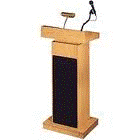
Discipline-Based Education Research Group Speaker Series
Date of this Version
11-2013
Document Type
Presentation
Citation
DBER Group Discussion on 2013‐10‐17
Abstract
Understanding what makes a highly‐qualified science teacher requires careful research on teacher education programs. Existing research pertaining to secondary science preservice teachers (PSTs) is limited in the areas of: (a) mastery of subject matter knowledge; (b) evolving teaching selfefficacy, and (c) inquiry‐based enacted curricular practices. We studied each issue over the course of an intensive, 14‐month, graduate teacher certification program for practicing scientists and recent science graduates. First, we asked if there was a relationship between amount of content area undergraduate coursework and performance (GPA in core content courses) and found an expected, yet preliminary, connection between higher undergraduate GPA and fewer retained science misconceptions. Second, we surveyed pre‐ and post‐program teaching self‐efficacy beliefs in classroom management, instructional practices and student engagement; our analysis indicates a positive change over time on two of the three scales, and a reasonably large effect size. Finally, classroom inquiry‐based instructional factors showed improvement as PSTs gained experience through student teaching and in their first year teaching science (fall and spring comparisons) over each 5‐month period. We also present qualitative sub‐studies of teacher self‐efficacy and use of classroom discourse by PSTs as typical examples of issues faced by new science teachers.
Included in
Curriculum and Instruction Commons, Educational Methods Commons, Higher Education Commons, Science and Mathematics Education Commons


Comments
Copyright (c) 2013 Beth Lewis, Aaron Musson & Jia Lu